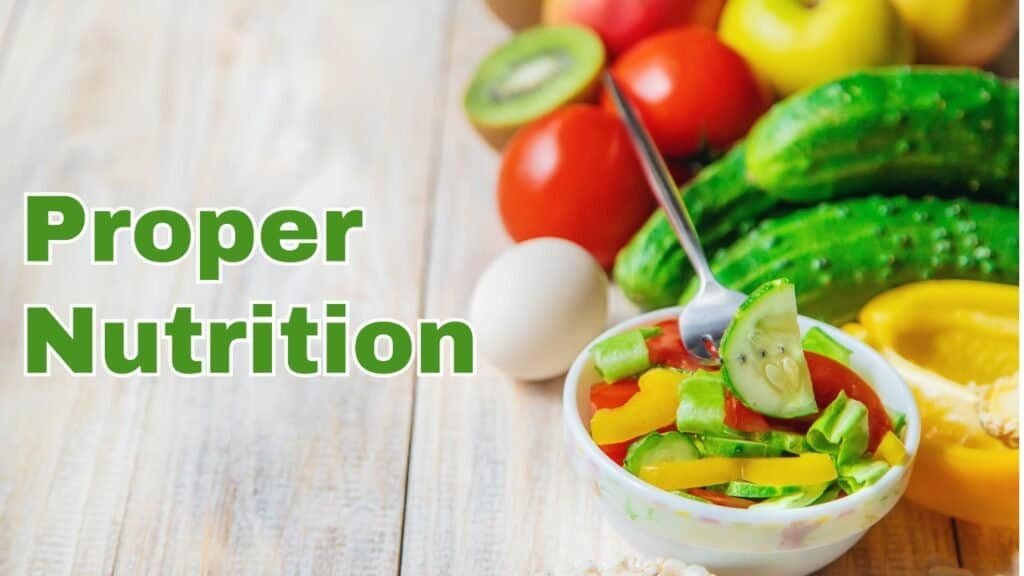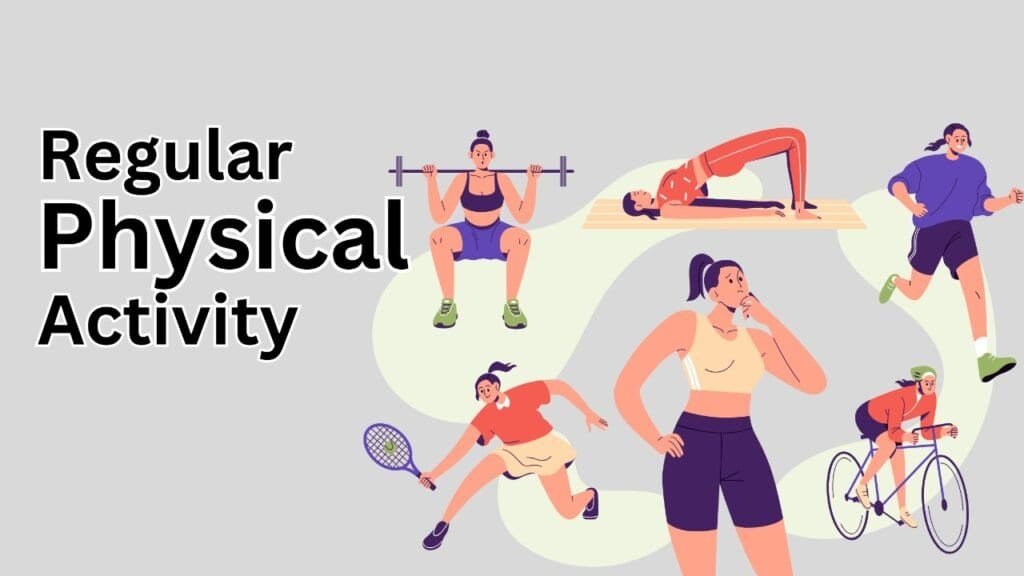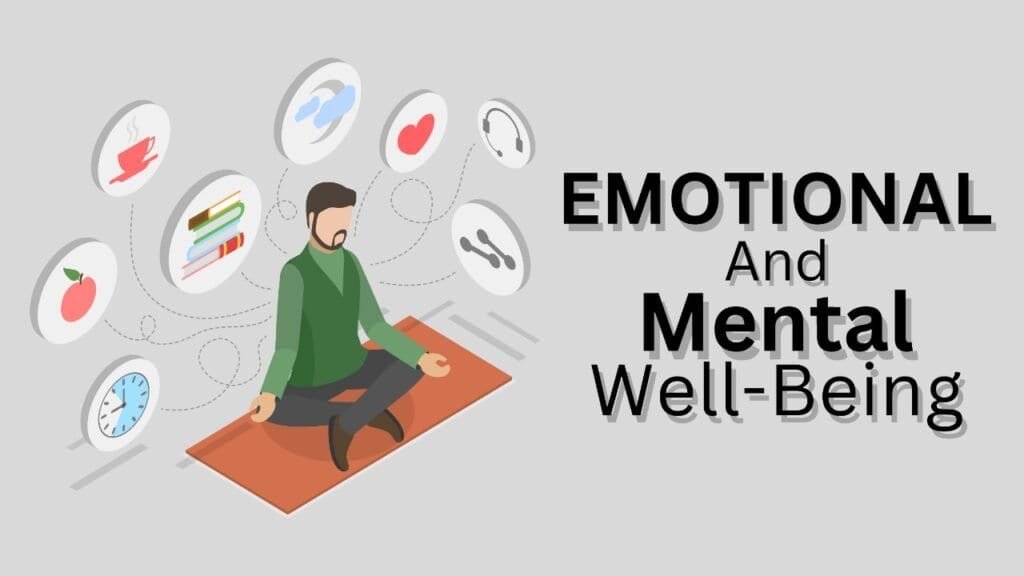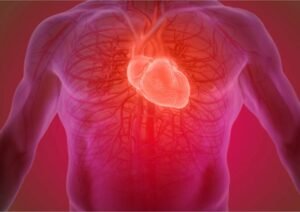The pursuit of good health is a universal aspiration, an ever-present goal that transcends borders, cultures, and generations. In a world marked by the fast pace of life, numerous distractions, and an array of challenges, achieving and maintaining good health remains a cornerstone of a fulfilling and productive existence.

In this introduction, we’ll set the stage for our exploration of the three keys to good health.
A Universal Desire: At its core, the desire for good health is a shared human experience. Regardless of age, gender, or background, we all yearn for the vitality and well-being that come with robust health. It’s a desire that drives us to make choices that promote our longevity and overall quality of life.
The Three Keys to Unlocking Good Health: As we embark on this journey, we’ll unveil the three fundamental keys to good health—proper nutrition, regular physical activity, and emotional and mental well-being.
These keys open doors to well-rounded health that embraces the physical, the mental, and the emotional aspects of our lives.
A Guiding Light: The quest for good health is not a solitary journey. It’s a collective endeavor that requires knowledge, understanding, and support. Throughout this article, we will shine a light on the path to good health, offering insights, tips, and practical advice to guide you on your way.
The Importance of Balance: At the heart of this exploration lies the understanding that these three keys are interconnected. Good health isn’t just about a nutritious meal or a rigorous workout; it’s about finding balance.
It’s about recognizing that mental well-being is as vital as physical health, and that a harmonious blend of these three elements can unlock the doors to a healthier and more fulfilling life.
Empowerment through Knowledge: Our journey will be grounded in knowledge. By understanding the role that nutrition, physical activity, and emotional well-being play in your health, you’ll be empowered to make informed choices. The choices you make, both large and small, will shape your well-being.
A Call to Action: As you read on, remember that this isn’t just an exploration; it’s a call to action. Good health is within your reach, and this article is your guide. It’s an invitation to take the first steps towards a healthier, more vibrant you. It’s a reminder that your health is a treasure worth cherishing and safeguarding.
In the sections that follow, we’ll delve deeper into each of the three keys to good health, providing you with the knowledge and tools to unlock the doors to a life marked by vitality, resilience, and a deep sense of well-being.
So, let’s begin our journey towards a healthier you, guided by the wisdom of proper nutrition, the energy of physical activity, and the serenity of emotional and mental well-being.
Key 1: Proper Nutrition

The saying, “You are what you eat,” holds profound truth when it comes to good health. Nutrition, the first key to a healthy life, plays a foundational role in providing our bodies with the essential elements they need to function optimally.
The Power of a Balanced Diet: Proper nutrition is more than just consuming food. It’s about providing our bodies with the right mix of nutrients that fuel every aspect of our existence.
A balanced diet rich in vitamins, minerals, carbohydrates, proteins, and fats ensures that our bodies have the raw materials needed for growth, energy, and overall well-being.
Nutrient-Rich Foods: Whole grains, fruits, vegetables, lean proteins, and healthy fats are the cornerstones of a nutrient-rich diet. These foods offer vitamins, minerals, and antioxidants that fortify our immune systems, support healthy organ function, and provide the energy we need for our daily activities.
Avoiding Empty Calories: Equally important is avoiding “empty calories,” found in sugary and highly processed foods.
These items, while often tempting, can lead to weight gain, blood sugar imbalances, and an increased risk of chronic diseases. A nutritious diet involves making conscious choices that minimize the intake of empty calories.
Hydration Matters: Hydration is an integral part of proper nutrition. Water, the elixir of life, keeps our bodies well-hydrated, helps regulate temperature, and aids in digestion. It’s a simple yet essential element often overlooked in the pursuit of good health.
Portion Control: Proper nutrition is not only about the quality of the food we eat but also about the quantity. Portion control is vital to prevent overeating, manage weight, and ensure that the body receives what it requires without excess.
Nutrition and Overall Well-Being: Good nutrition isn’t just about physical health; it’s also intricately connected to mental and emotional well-being. Studies have shown that a balanced diet can influence mood, cognition, and the risk of mental health conditions. The gut-brain connection highlights how what we eat can affect our emotional state.
Nutrition Across the Lifespan: The importance of proper nutrition extends across the lifespan. From infancy to old age, a balanced diet supports growth, development, and healthy aging. Different life stages require different nutrient considerations, but the importance of nutrition remains constant.
Practical Tips: In our exploration of proper nutrition, we will provide practical tips and guidelines to make informed choices about food. We’ll discuss meal planning, label reading, and strategies for maintaining a nutritious diet even in the face of busy schedules and food temptations.
Empowering through Knowledge: Knowledge is a powerful tool on the path to proper nutrition. By understanding the nutritional value of different foods and the impact of our dietary choices, you are empowered to make decisions that positively influence your health.
In the sections that follow, we will delve deeper into the specific aspects of proper nutrition, offering guidance on building a balanced diet, understanding dietary needs at various life stages, and practical strategies for incorporating healthy eating habits into your daily life.
With the knowledge and tools provided, you will be well on your way to unlocking the first key to good health and embracing a life marked by vitality and well-being.
Key 2: Regular Physical Activity

Physical activity is the second key to good health, a cornerstone of well-being that empowers us to live life to its fullest. Regular exercise doesn’t just benefit the body; it also nurtures the mind and enriches our emotional health.
The Power of Movement: At its essence, physical activity is about movement—movement that engages our muscles, challenges our cardiovascular system, and invigorates our overall physical state. It’s the antidote to sedentary lifestyles and the catalyst for a healthier and more vibrant you.
The Physical Benefits: Regular exercise brings a multitude of physical benefits. It strengthens muscles and bones, improves cardiovascular health, and enhances flexibility and balance. It’s a powerful tool for managing weight, reducing the risk of chronic diseases, and increasing longevity.
The Mental and Emotional Wellness Connection: Physical activity is not solely about the body; it has a profound impact on mental and emotional well-being.
Exercise triggers the release of endorphins, those “feel-good” neurotransmitters that elevate mood and reduce stress. It provides an outlet for anxiety and can even enhance cognitive function and memory.
Finding Your Passion: The beauty of physical activity is that it comes in many forms. Whether it’s dancing, jogging, yoga, swimming, or simply taking a brisk walk, there’s an activity that can be both enjoyable and fulfilling for everyone.
The key is to find what you love, as this makes it easier to maintain a consistent exercise routine.
Balancing Rest and Movement: It’s essential to strike a balance between rest and exercise. While regular physical activity is vital, so too is giving your body the rest it needs to recover and rejuvenate. Adequate sleep and recovery periods are integral parts of a holistic approach to physical health.
Exercise as a Lifelong Commitment: The benefits of physical activity extend across the lifespan. Whether you’re a child, an adult, or a senior, exercise plays a vital role in promoting growth, maintaining health, and ensuring an active, vibrant, and independent life.
The Role of Consistency: Regularity is the key to unlocking the benefits of physical activity. A sporadic or inconsistent exercise routine may not yield the desired results. Consistency in both frequency and intensity is the path to lasting health improvements.
Incorporating Exercise into Daily Life: Our lives are often busy, and the thought of fitting exercise into our schedules can seem daunting. Yet, it is entirely possible to incorporate physical activity into daily life, whether through small changes in routine, such as taking the stairs instead of the elevator, or by dedicating specific time for workouts.
Empowerment through Movement: By understanding the power of regular physical activity, you are empowered to make choices that support your physical and mental health. You hold the key to better vitality, improved emotional well-being, and an overall higher quality of life.
In the upcoming sections, we will delve deeper into the specifics of regular physical activity, offering guidance on finding the right exercises for you, tips on staying motivated, and the profound impact that movement can have on your health.
As we explore this second key to good health, remember that exercise is not a chore; it’s a gift you give yourself—a gift that enriches your life on every level.
Key 3: Emotional and Mental Well-Being

The third key to good health, perhaps the most intricate and often overlooked, is emotional and mental well-being. This key is the linchpin that holds the physical and nutritional elements together, forging a holistic path to overall health.
The Mind-Body Connection: The relationship between the mind and body is profound. Emotional and mental well-being is not merely about feeling happy; it’s about achieving a state of balance, resilience, and adaptability that fosters a sense of fulfillment.
Emotional Intelligence: Emotional well-being is closely tied to emotional intelligence—the ability to recognize, understand, and manage our own emotions and the emotions of others. It’s about perceiving and navigating the rich tapestry of human feelings with empathy and wisdom.
The Power of Positivity: A positive outlook on life is a potent force in nurturing emotional well-being. Optimism and resilience enable us to bounce back from adversity, cope with stress, and maintain a hopeful perspective on the future.
Stress Management: Stress is a natural part of life, but managing it is essential. Chronic stress can take a toll on both physical and mental health. Learning to cope with stress through mindfulness, relaxation techniques, or seeking support is a fundamental aspect of maintaining well-being.
Social Connections: Human beings are inherently social creatures. Building and nurturing social connections are integral to emotional and mental well-being. These connections offer a support system that provides comfort, understanding, and a sense of belonging.
Seeking Help When Needed: Just as physical health benefits from medical care, emotional and mental health often require professional support. Recognizing when to seek help and having the courage to do so is a sign of strength, not weakness.
The Importance of Self-Care: Self-care is a vital component of emotional and mental well-being. It involves setting aside time for relaxation, hobbies, and activities that bring joy and fulfillment. Self-care is an act of self-compassion that helps manage the demands of daily life.
Embracing Challenges: A life without challenges is unrealistic, but it’s how we approach and overcome these challenges that shapes our emotional well-being. Resilience—the ability to bounce back from adversity—is a crucial skill that can be developed and strengthened.
Embracing a Holistic Approach: Emotional and mental well-being is not a separate entity but an integral part of overall health. It influences and is influenced by physical health and proper nutrition. A holistic approach to health recognizes the interconnectedness of these elements.
Empowerment through Emotional and Mental Well-Being: By understanding the power of emotional and mental well-being, you gain the capacity to navigate life’s challenges with grace, cultivate positivity, and nurture your inner world. It’s a key to unlocking a life marked by emotional resilience and a profound sense of well-being.
In the following sections, we will delve deeper into the specifics of emotional and mental well-being, offering guidance on developing emotional intelligence, managing stress, nurturing social connections, and embracing self-care.
As we explore this third key to good health, remember that well-being isn’t just about physical fitness; it’s about embracing life with joy, purpose, and a resilient spirit.
The Interconnected Nature of the Three Keys
In our quest for good health, it’s crucial to understand that the three keys—proper nutrition, regular physical activity, and emotional and mental well-being—are intricately interconnected. They form a holistic approach to well-being that nourishes the body, enriches the mind, and fosters emotional resilience.
Balancing the Triangle: Imagine these three keys as the vertices of a triangle, with each one supporting and reinforcing the others.
A strong and healthy body, fueled by proper nutrition, is better equipped for physical activity. Exercise, in turn, contributes to a healthier mind, while emotional well-being enhances the body’s response to nutrition.
The Mind-Body Connection: The mind and body share a profound connection. A well-nourished body can boost mental clarity and emotional resilience, while a healthy mind is more likely to make conscious choices about nutrition and exercise.
Stress Reduction: Regular physical activity has a remarkable ability to reduce stress by releasing endorphins, which can enhance emotional well-being. Lower stress levels, in turn, support better dietary choices and overall nutrition.
Emotional Resilience and Self-Care: Emotional and mental well-being is the bedrock of resilience. A resilient mind can better cope with life’s challenges, and this resilience facilitates self-care. Self-care includes making healthy food choices and engaging in regular exercise as acts of self-compassion.
Positive Feedback Loop: The interconnected nature of these keys creates a positive feedback loop. When we invest in one aspect of our health, it ripples into the others. For example, a successful workout can elevate mood, which can lead to better dietary choices and emotional well-being.
Conscious Choices: Recognizing the interconnectedness of these keys empowers us to make conscious choices. A nutritious meal can enhance the energy levels needed for exercise, and a successful workout can boost self-esteem and emotional resilience.
Addressing Imbalances: The interconnected nature of these keys also means that imbalances in one area can affect the others. If we neglect physical activity or consume an unhealthy diet, it can lead to emotional and mental strain. Likewise, emotional stress can influence dietary choices.
A Holistic Approach to Well-Being: By embracing the interconnected nature of the three keys, we shift away from a fragmented approach to well-being and move toward a holistic perspective.
This holistic approach recognizes that health is a multifaceted concept that encompasses the physical, mental, and emotional aspects of our lives.
Empowerment through Understanding: Understanding the interplay between these keys empowers us to take charge of our health. It enables us to see the broader picture of well-being, guiding us to make choices that nurture our bodies, minds, and emotions in harmony.
In the following sections, we will continue to explore how these keys work together to create a tapestry of good health. By understanding this interconnectedness, you will have the tools and knowledge to craft a life that reflects vitality, resilience, and emotional and mental well-being.
Three keys to good health : Common Challenges and Obstacles
The path to good health is not without its hurdles and challenges. Recognizing and addressing these common obstacles is crucial in ensuring that the three keys to good health—proper nutrition, regular physical activity, and emotional and mental well-being—can be successfully integrated into our lives.
1. Time Constraints: In our fast-paced world, time is often a precious commodity. Balancing work, family, and social commitments can make it challenging to find time for exercise, meal preparation, and self-care.
However, it’s important to remember that good health is an investment in your future, and finding even small pockets of time for health-promoting activities is worthwhile.
2. Motivation and Consistency: Maintaining motivation and consistency in exercise routines and dietary choices can be a struggle. Setbacks and plateaus are common, but understanding that these are part of the journey can help you push through them.
Surrounding yourself with a support system can also provide motivation and accountability.
3. Unhealthy Food Environment: Access to unhealthy food options is a significant challenge, especially in environments where processed and fast foods are readily available. Making an effort to plan and prepare nutritious meals is a way to counteract this challenge.
4. Stress and Emotional Barriers: High levels of stress and emotional obstacles can hinder progress in all three key areas. Stress can lead to overeating, emotional eating, and the neglect of exercise. Addressing stress and emotional well-being through relaxation techniques, mindfulness, and self-care is essential.
5. Financial Constraints: The cost of nutritious foods, gym memberships, or exercise equipment can be a barrier for some individuals. However, there are many affordable ways to make healthy choices, such as outdoor exercise, home workouts, and budget-friendly nutritious meals.
6. Lack of Social Support: A lack of social support can make it challenging to maintain good health. Family and friends who do not share your health goals can inadvertently undermine your efforts. Communicating your goals and seeking like-minded individuals or support groups can be beneficial.
7. Health Conditions and Injuries: Pre-existing health conditions or injuries can present significant challenges. It’s crucial to work with healthcare professionals to find safe and appropriate ways to engage in physical activity and dietary changes. These challenges can often be overcome with guidance and adapted exercise and nutrition plans.
8. Lack of Knowledge: A lack of knowledge about proper nutrition, exercise, and emotional well-being can be a significant obstacle. Education is a powerful tool in addressing this challenge.
Learning about the basics of nutrition, the benefits of physical activity, and strategies for emotional and mental well-being can empower individuals to make informed choices.
9. Balancing Life Stages: Different life stages, such as parenthood, career transitions, or aging, can present unique challenges to maintaining good health. Adapting to these transitions and finding ways to incorporate the three keys into changing routines is crucial.
10. Overcoming Setbacks: Setbacks are an inevitable part of any health journey. Understanding that they are temporary and learning from them is essential. Perseverance and resilience in the face of setbacks are key to long-term success.
By recognizing and addressing these common challenges and obstacles, individuals can develop strategies and resilience that enable them to overcome barriers to good health.
It’s important to approach the journey to good health with patience, persistence, and a commitment to finding solutions to these challenges, as they are a natural part of the process.
Related Posts to the three keys to good health?
- Vital Health And Fitness Tips – Physical, Mental And Emotional Improvements
- What to Eat While Intermittent Fasting? (Answered)
Three keys to good health : Conclusion
In our exploration of the three keys to good health—proper nutrition, regular physical activity, and emotional and mental well-being—we’ve embarked on a journey toward a richer, more fulfilling life.
These keys unlock doors to well-being that extend beyond physical health, encompassing mental clarity, emotional resilience, and a profound sense of balance.
A Holistic Approach: The interconnected nature of these keys reveals that good health is a tapestry woven from the threads of our physical, mental, and emotional well-being. By nurturing all three aspects, we can truly achieve a holistic approach to health.
Empowerment through Knowledge: Knowledge is the compass that guides us on this journey. By understanding the principles of proper nutrition, the power of regular physical activity, and the importance of emotional and mental well-being, we gain the tools needed to make informed choices that enhance our health.
Overcoming Challenges: Challenges and obstacles are an inherent part of this journey, yet they are not insurmountable. By recognizing and addressing common challenges, we can devise strategies to overcome them. Resilience, motivation, and consistency are the tools that help us push through setbacks and plateaus.
A Lifetime Commitment: Good health is not a destination; it’s a lifelong commitment. At each stage of life, from childhood to old age, these keys remain crucial. As we adapt to changing circumstances, we continue to embrace good health as an ongoing pursuit.
Self-Compassion and Self-Care: Central to this journey is the notion of self-compassion. Self-care is not selfish; it’s an act of self-love and self-preservation. By setting aside time for self-care, we replenish our reserves and nurture our well-being.
A Call to Action: As we conclude this exploration, it’s important to recognize that the pursuit of good health is not a solitary journey. It’s a collective endeavor, a shared aspiration that resonates across cultures and societies. It’s a call to action, a reminder that our health is a precious treasure worth safeguarding.
The Infinite Benefits of Good Health: The benefits of good health are immeasurable. They extend to physical vitality, mental clarity, emotional stability, and a life marked by resilience and joy. The pursuit of good health enriches our lives, allowing us to savor each moment, reach our full potential, and embrace the future with enthusiasm.
Your Journey Begins: The journey to good health begins with a single step—an understanding that your health is a treasure to be cherished and protected. It’s a commitment to nourishing your body, moving with purpose, and nurturing your mind and emotions.
In your hands, you hold the keys to a life enriched by vitality, resilience, and well-being. By unlocking the doors to good health, you are writing a story of self-empowerment, self-care, and self-compassion.
You are creating a life that radiates not only with physical health but with the profound sense of balance that comes from nurturing your body, your mind, and your emotions.
As you continue on this journey, remember that the three keys to good health are not just concepts; they are the cornerstones of your well-being.
They are your path to a life marked by health, happiness, and a sense of fulfillment. Your journey to good health is not just a destination; it’s a way of life—an enriching journey that you embark on each day, one choice at a time.


